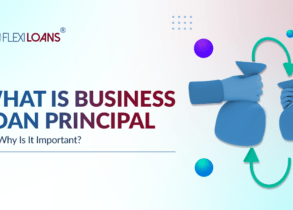Oct 15, 2022
Jun 25, 2025

Startups, which are dominating the global economy, need a lot of capital to grow. Two of the most common ways to secure capital are through equity and debt. Though they serve the same purpose, they are inherently different.
When you borrow money from a lender with a promise to repay it with interest over time, it is called debt financing or business loan. Getting a loan from a bank is the most common form of business loan financing. Business loans can be secured (with collateral) or unsecured (without collateral), depending on the amount you need, your eligibility, and the lender’s policy.
Since no shares are exchanged, your ownership of the business is unaffected, which makes debt popular among entrepreneurs. This is also the key difference between debt and equity.
Equity financing, another common method of raising capital, comes with a drop in ownership for the founder. Entrepreneurs sell a stake in the company to individuals, institutions or businesses in return for capital. Investors may get the right to participate in operations and decision-making processes, depending on the size of their investment. In some cases, they also have the right to liquidate the firm and/or its assets if it fails to recoup its losses.
With each transaction, the valuation of the company generally rises. Venture capitalists, angel investors, and private equity firms provide equity finance.
Key Differences Between Business Loans and Equity Financing
| Characteristic | Business Loans | Equity Financing |
| Urgency | Borrowing money from a lender takes lesser time. Banks, NBFCs and fintech firms all take great satisfaction in their ability to disburse a loan in just a few days. If you want money right away, debt financing or a business loan can be a better option. | Investors take time in doing proper due diligence, which involves complicated paperwork, disclosures, and legal agreements, of a business before investing. So equity financing can take anywhere from three to six months. |
| Collateral | The amount you can borrow through debt financing is constrained if you’re a firm, especially a small one. The majority of lenders have a maximum loan amount per product capped or determined by your financial situation. Above this, your ability to take a loan can be constrained if your business provides services and has few assets since lenders generally need collateral as security. | Equity financing does not require collateral, and the likelihood of raising a larger sum is significantly higher than a business loan. If your financial demand is large, equity funding should be the best option since it is collateral-free and angels and VCs can sign fat cheques. However, debt financing should be your first choice if you only need a small amount. |
| Business expertise | The lender only brings money to the table. It doesn’t add any value to the business or bring in expertise or knowledge for entrepreneurs to tap into. | Equity investors bring a lot more than money to the table. They come with expertise, domain knowledge as well as a wide network for entrepreneurs to tap into. |
| Liability | You are required to pay interest on the business loan. If you miss an EMI, the business might run into an expensive financial problem. Any pledged assets will be repossessed by the lender in the event of non-payment, which will negatively affect the borrower’s credit score and ratings. | The borrower in equity financing doesn’t need to repay the loan. Their only concern is making wise business decisions so the company’s valuation can grow in line with the plan shared with investors. As shareholders have the authority to sell the firm’s assets or replace the management, the failure to perform might be disastrous for the company. |
| Ownership control | With debt financing, the company has no obligations to the lender. The lender has no control over the company’s operations and just holds the assets as collateral. | While engaging in equity financing, investors are granted an equal right to information about the business, its operations, and its viability as well as an equal voice in these matters. |
Key Takeaways
Capital is critical to businesses. The kind of funding you need depends on the level of your business. You can consider acquiring a loan from family, friends, or a bank if you are just beginning. But if you are growing or need higher capital, equity financing could become a more attractive alternative.
Making a decision based on information is essential since both types of funding have their pros and cons. Flexiloans provides credit facilities to budding entrepreneurs and MSMEs at competitive interest rates. You can avail of short-term business loans and MSME loans hassle-free with minimum collateral.







